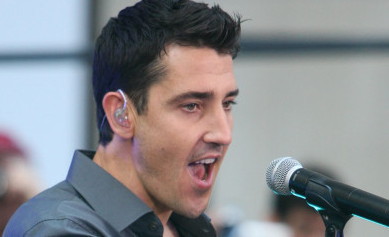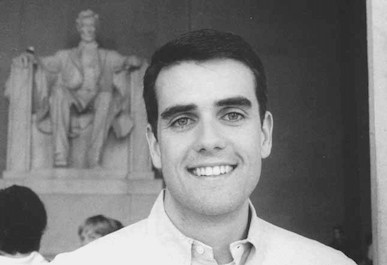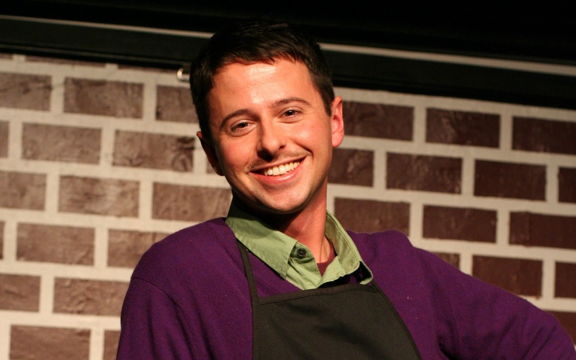|
presents THIS DAY IN GAY HISTORY based on: The White Crane Institute's 'Gay Wisdom', Gay Birthdays, Gay For Today, Famous GLBT, glbt-Gay Encylopedia, Today in Gay History, Wikipedia, and more …
Collected by Ted November 29 [{(o)}]|[{(o)}]|[{(o)}]|[{(o)}]| [{(o)}]|[{(o)}] 1628 – John Felton, murderer of George Villiers (King James I's lover) was hanged. Villiers was the last in a succession of handsome young favorites on whom the king lavished affection and patronage, although the personal relationship between the two has been much debated.
1764 – Percy Jocelyn (d.1843) was Anglican Bishop of Clogher in the Church of Ireland from 1820 to 1822. He was forced from his position due to claims of homosexual practices. In 1811, Bishop Percy's brother John Jocelyn's coachman, James Byrne, accused Percy of 'taking indecent familiarities' with him (possibly buggery) and of 'using indecent or obscene conversations with him'. The bishop survived this accusation, instead suing the coachman for libel. Byrne was convicted and was sentenced to two years in jail and also to public flogging. Recanting his allegations at the prompting of the bishop's agent, the floggings were stopped. A public subscription was raised in 1822 after Jocelyn's fall from grace to raise money for Byrne to try to make up for this miscarriage of justice. On 19 July 1822, Percy Jocelyn was caught in a compromising position with a Grenadier Guardsman, John Moverley, in the back room of The White Lion public house, St Albans Place, off The Haymarket, Westminster. He and Moverley were released on bail, provided by the Earl of Roden and others. Jocelyn broke bail and moved to Scotland where he worked as a butler under an assumed name. He was declared deposed in his absence by the Metropolitan Court of Armagh in October 1822 for "the crimes of immorality, incontinence, Sodomitical practices, habits, and propensities, and neglect of his spiritual, judicial, and ministerial dutie."  A political cartoon of the time (Click for larger) Jocelyn was the most senior British churchman to be involved in a public homosexual scandal in the 19th century. It became a subject of satire and popular ribaldry, resulting in more than a dozen illustrated satirical cartoons, pamphlets, and limericks, such as: The Devil to prove the Church was a farce Went out to fish for a Bugger. He baited his hook with a Soldier's arse And pulled up the Bishop of Clogher. The scandal was so great, that in the days following, "it was not safe for a bishop to show himself in the streets of London", according to Charles Manners-Sutton, Archbishop of Canterbury at the time. In August 1822, Robert Stewart, Viscount Castlereagh, who was both the Foreign Secretary and Leader of the House of Commons, had an audience with King George IV saying he was being blackmailed, and that "I am accused of the same crime as the Bishop of Clogher."
1834 – John Mead of Australia was executed for an "unnatural crime," most likely sodomy.
1898 – Rod La Rocque silver screen matinee idol, born (d.1969); It is well-documented that he had a torrid affair with actor Richard Halliburton, which gives gentle irony to two of La Rocque's films: Let Us Be Gay (1929) and One Romantic Night (1930). to say nothing of The Drag-Net (1936). He was born Rodrique la Rocque de la Rour in Chicago of French and Irish descent. He began appearing in stock theater at the age of seven and eventually ended up at the Essanay Studios in Chicago where he found steady work until the studios closed. He then moved to New York City and worked on the stage until he was noticed by Samuel Goldwyn who took him to Hollywood. Over the next two decades, he appeared in films and made the transition to sound films with ease. In 1927, he married Hungarian actress Vilma Banky in a lavish and highly (some might say "overly") publicized wedding. They were married until his death in 1969, and seemed to have a loving compatible relationship.
1915 – Billy Strayhorn (d.1967) was an American composer, pianist and arranger, best known for his successful collaboration with bandleader and composer Duke Ellington lasting nearly three decades. His compositions include "Chelsea Bridge", "Take the "A" Train" and "Lush Life". His first jazz exposure was a combo called the "Mad Hatters" who played around Pittsburgh, until he met Duke Ellington in December, 1938, after an Ellington performance in Pittsburgh in late 1938. Here he first told, and then showed, the band leader how he would have arranged one of Duke's own pieces. Ellington was impressed enough to invite other band members to hear Strayhorn. At the end of the visit he arranged for Strayhorn to meet him when the band returned to New York. Strayhorn worked for Ellington for the next quarter century as an arranger, composer, occasional pianist and collaborator until his early death from cancer. As Ellington described him, "my right arm, my left arm, all the eyes in the back if my head, my brain waves in his head, and his in mine". Some have suggested that Ellington and Strayhorn were, actually lovers. His relationship with Ellington was always difficult to pin down: Strayhorn was a gifted composer and arranger who seemed to flourish in Duke's shadow. Ellington was somewhat of a father figure and the band, by and large, was affectionately protective of the diminutive, mild-mannered, unselfish Strayhorn, nicknamed by the band "Strays", "Weely", and "Swee' Pea". Strayhorn, for his part, may have preferred to stay out of the limelight, since that also allowed him to be out of the closet in an era and a community intolerant of Gay artists. Though Duke Ellington took credit for much of Strayhorn's work, he did not maliciously drown out his partner. Ellington would make jokes onstage like, "Strayhorn does a lot of the work but I get to take the bows!" In addition to Strayhorn being naturally shy, society made it hard for a black homosexual to get any recognition at all. Strayhorn composed the band's theme, Take the A Train and a number of other pieces that became part of the band's repertoire. In some cases Strayhorn received attribution for his work such as, Lotus Blossom, Chelsea Bridge, and Rain Check, while other such as Day Dream and Something to Live For, were listed as collaborations with Ellington or in the case of Satin Doll and Sugar Hill Penthouse were credited to Ellington alone. On the other hand, Ellington gave Strayhorn full credit as his collaborator on later, larger works such as Such Sweet Thunder, A Drum Is a Woman, The Perfume Suite and The Far East Suite, where Strayhorn and Ellington worked closely together. Shortly before Ellington went on his second European tour with his orchestra, from March to May 1939, Ellington announced to his sister Ruth and son Mercer Ellington, that Strayhorn "is staying with us." Through Mercer, Strayhorn met his first partner, African-American musician Aaron Bridgers, with whom Strayhorn lived until Bridgers moved to Paris in 1947. Openly gay during an extremely homophobic era, Strayhorn participated in many civil rights acts trying to correct this societal flaw before the movement gained momentum. As a committed friend to Dr. Martin Luther King, Jr., he arranged and conducted King Fought the Battle of `Bam' for the Ellington Orchestra in 1963 for the historical revue My People, dedicated to Dr. King. Critics agree that his dedication to the gay movement was a contributing factor to him being so overlooked as an important musician. People concentrated more on the fact that he was Gay and black than his genius as a pianist, composer, and arranger. For this reason, he hid behind Duke Ellington for so long, letting him take credit for much of his work. Billy Strayhorn had a reputation for having an impact on many people he met because he had such a strong character. He had a major influence on the career of Lena Horne. Strayhorn was diagnosed with esophageal cancer in 1964, which eventually caused his death in 1967. Strayhorn finally succumbed in the early morning on May 31, 1967, in the company of his partner, Bill Grove. (It has often been falsely reported that Strayhorn died in Lena Horne's arms. By her own account, Horne was touring in Europe when she received the news of Strayhorn's death.)
1931 – Leo Martello (d.2000) was an American Wiccan priest, gay rights activist, and author. He was a founding member of the Strega Tradition, a form of the modern Pagan new religious movement of Wicca which drew upon his own Italian heritage. During his lifetime he published a number of books on such esoteric subjects as Wicca, astrology, and tarot reading. Born to a working-class Italian American family in Dudley, Massachusetts, he was raised Roman Catholic although became interested in esotericism as a teenager. He later claimed that when he was 21, relatives initiated him into a tradition of witchcraft inherited from their Sicilian ancestors; this conflicts with other statements that he made, and there is no independent evidence to corroborate his claim. During the 1950s, he was based in New York City, where he worked as a graphologist and hypnotist. After beginning to publish books on paranormal topics in the early 1960s, he publicly began identifying as Wiccan in 1969, and stated that he was involved in a New York coven. After the Stonewall riots of 1969, Martello – himself a gay man – involved himself in gay rights activism, becoming a member of the Gay Liberation Front (GLF). Leaving the GLF following an internal schism, he became a founding member of the Gay Activist Alliance (GAA) and authored a regular column, "The Gay Witch", for its newspaper. In 1970 he founded the Witches International Craft Associates (WICA) as a networking organization for Wiccans, and under its auspices organized a "Witch In" that took place in Central Park at Halloween 1970, despite opposition from the New York City Parks Department. To campaign for the civil rights of Wiccans, he founded the Witches Anti-Defamation League, which was later renamed the Alternative Religions Education Network. In 1973, he visited England, there being initiated into Gardnerian Wicca by the Gardnerian High Priestess Patricia Crowther. He continued practicing Wicca into the 1990s, when he retreated from public life, eventually succumbing to cancer in 2000.
1933 – Adolf Brand, who began publishing one of the earliest gay publications in Berlin, wrote a letter to his supporters saying he was unable to continue. Nazi raids and seizures had left him financially ruined.
They traveled the world, spending a "honeymoon" year in Southeast Asia in 1979 living for months in Sri Lanka where they made their film The Gardener Of Eden and in 1984, major film museums in Frankfurt, Germany and Vienna, Austria mounted week-long retrospectives of their work in cinema, allowing them to travel for a year from Sweden to Egypt. After James' death in 1999 in Port Townsend, Washington where they had moved 10 years earlier, Joel moved to New York where he lived with their old friend, writer and anthropologist, Tobias Schneebaum (Keep the River On The Right) for four years until Tobias' death from Parkinson's Disease. Joel now makes his home in Bali, Indonesia where he lives with his partner, psychiatrist Nirgrantha. Joel recently began to make films again after a twenty-two year hiatus. Some of these films can be seen on his website www.joelasinger.com along with many of his photographs.
1950 — John Peter Hooten is an American actor born on this date. He is best known for playing the title character in the television film Dr. Strange. Hooten started acting in 1968 at the age of 17. He appeared as an uncredited extra in Midnight Cowboy. He attended Ithaca College in upstate New York. His first speaking role was a 1969 appearance on the TV drama Marcus Welby M.D.. Later, he played the title character in the 1978 TV film Dr. Strange and appeared as a guest star in The Waltons, Mod Squad and Mannix. Hooten and the poet James Merrill were romantic partners from 1983 until the death of the latter in 1995.
1959 – Peter Cameron, born in Pompton Plains, New Jersey, is an American novelist and writer living in New York City. He is best known for his novels Andorra, The Weekend, The City of Your Final Destination, Someday This Pain Will Be Useful to You, and Coral Glynn. After arriving in New York City in 1982, Cameron worked for a year in the subsidiary rights department of St. Martin’s Press. Upon realizing he did not want to pursue a career in publishing, he began doing administrative work for non-profit organizations. From 1983 to 1988, he worked for the Trust for Public Land, a land-conservation organization, and from 1990 to 1998 he worked for Lambda Legal Defense and Education Fund, a legal organization that protects and extends the civil rights of gay men, lesbians, and people with HIV/AIDS. He sold his first short story to The New Yorker in 1983, and published ten more stories in that magazine during the next few years. This exposure facilitated the publication of his first book, a collection of stories titled One Way or Another in 1986. One Way or Another was awarded a special citation by the PEN/Hemingway Award for First Book of Fiction. In 1988, Cameron was hired by Adam Moss to write a serial novel for the just-launched magazine, 7 Days. This serial, which was written and published a chapter a week, became Leap Year, a comic novel of life and love in New York City in the twilight of the 1980s. It was published in 1989 by Harper & Row, which also published a second collection of stories, Far-flung, in 1991. Beginning in 1990, Cameron stopped writing short fiction and turned his attention toward novels. His second novel, The Weekend, was published in 1994 by Farrar, Straus & Giroux, which also published a third novel, Andorra, in 1997, and a fourth, The City of Your Final Destination, in May 2002. Another novel, Someday This Pain Will Be Useful To You, was published by Farrar, Straus & Giroux in September 2007, and won that year's Ferro-Grumley Award for Gay Male Fiction. His latest novel, Coral Glynn, was also published by Farrar, Straus and Giroux in February, 2012. His work has been translated into a dozen languages.
Jonathan Knight was born in Boston, Massachusetts, to Canadian parents. (His father, an Episcopal priest, is from Meaford, Ontario; his mother is from Dunnville, Ontario.) He is one of six children, including Allison, Sharon, David, Christopher and Jordan. In the early 1990s, Knight was linked to teen pop singer Tiffany. Both denied dating at the time. In 2009, The National Enquirer published an article from a man claiming to be Knight's ex-boyfriend, and outing him as gay. In a January 2011 interview, singer Tiffany stated that Knight is gay, which Knight then confirmed, saying "I have lived my life very openly and have never hidden the fact that I am gay." n a statement on the NKOTB blog, he added "Apparently the prerequisite to being a gay public figure is to appear on the cover of a magazine with the caption 'I am gay'. I apologize for not doing so if this is what was expected!"
Since 2008, Knight has been in a relationship with Harley Rodriguez, best known for playing Manny Lopez in the Sweet Valley High television series. The two participated in the 26th season of the reality competition series The Amazing Race, which aired on CBS in early 2015, where they placed 9th. On November 15, 2016, while vacationing in Africa, the two became engaged when Knight proposed to Rodriguez. In March 2021, Knight began hosting the HGTV television show Farmhouse Fixer, in which he restores old New England farmhouses for clients. On August 25, 2022, it was revealed that Knight and Rodriguez had married.
1971 – Steve May is a former politician from Arizona, where he served in the Arizona House of Representatives. He was openly gay when he ran for and served in the legislature. He was nevertheless recalled to active duty in the military. He came to national attention in 1999 when the U.S. Army attempted to discharge him from the United States Army Reserve under the gay-exclusionary law known as "don't ask, don't tell" (DADT). May was born and grew up in a Mormon household in Phoenix, Arizona, in the district he later represented in the state legislature. He was an Eagle Scout. He entered the Naval Reserve Officer Training Corps in 1989 at the age of 17 at Claremont McKenna College and received his commission as an U.S. Army officer in 1993. He served for two and a half years at Fort Riley, Kansas. His assignments included managing the integration of women into an all-male platoon. He left the Army with an honorable discharge in 1995. May ran unsuccessfully for the House in 1996 before winning a seat in 1998, as a Republican. He ran as an openly gay man and had secured the endorsement of the Gay & Lesbian Victory Fund, a political action committee dedicated to helping elect openly LGBT candidates to public office. He and his family have engaged in protracted lawsuits about their competing business interests. On February 3, 1999, May spoke to a committee of the Arizona House about pending legislation that would prevent local jurisdictions from providing benefits to the domestic partners of their employees. He said:
I know many of you expected me to sit quietly in my office, but I cannot sit quietly in my office when another member attacks my family and attempts to steal my freedom. And furthermore if this legislature intends to take my gay tax dollars, which work just as well as your straight tax dollars, then treat me fairly under the law. A few weeks later, as the Kosovo crisis was developing, he was recalled by the Army Reserves, where he attained the rank of First Lieutenant. He returned to duty in April and in May a local magazine reported on him under the headline "Gay Ring Wing Mormon Steve May is a Walking Talking Contradiction". In July the Army notified him that he was under investigation for homosexuality. An Army spokesman commented in August: "I don't think that the individual has been, shall we say, keeping this under wraps, as to his sexual orientation." In March 2000, the Army asked him to resign and he refused. He said of this period:
That was in December of 1999 and I continued to serve my soldiers and my unit. My soldiers were very cooperative. They treated me just like they would any other officer, gay or straight. In March, I sent 18 kids off to Kosovo. When I came home from sending those kids out, I received a letter from the Army “inviting” me to resign. Not only did they invite me to resign, they wrote a letter of resignation for me. I wasn’t about to let the Army have the satisfaction of me just going away. The fact is, the Army called me back into service when they felt they needed me. I was willing to give my life for my country and now the Army was telling me that my life was no longer worthy to give. Not because of anything that I did, but because of who I am. Well, they should have known who I was before they asked me to me back. I refused to resign. On September 17, 2000, an Army panel recommended May be given an honorable discharge under DADT. May fought to remain in service and in January 2001 the Army terminated its discharge proceedings. May received an honorable discharge in May 2001 at the scheduled conclusion of his term of service. During his time in office, May served as the chairman of the House Ways and Means committee and was instrumental in getting Arizona's sodomy law repealed. In 2002, May lost his bid for re-election. In 2010, May joined the race for Arizona's 17th District House seat as a write-in candidate. Following the revelation of a 2009 guilty plea to a charge of driving under the influence of alcohol, for which May served ten days in jail and received three years of probation, May dropped out of the race.
1981 – John Milhiser is an American actor and comedian. Milhiser first garnered attention for his work as a member of the Upright Citizens Brigade sketch group Serious Lunch, before achieving widespread success for his brief stint as a cast member on the NBC sketch comedy series Saturday Night Live for the 2013–2014 season. He has been a regular performer at the Upright Citizens Brigade Theater since 2005, where he was a member of the sketch comedy group Serious Lunch, who have been featured on Late Night with Jimmy Fallon and Attack of the Show. Milhiser is a native of Belle Mead, New Jersey and he graduated in 2000 from Montgomery High School in Skillman, New Jersey. He later attended Hofstra University, where he graduated in 2004 as a Film Studies and Production major and was a member of Sigma Pi fraternity. Milhiser made his debut on Saturday Night Live on the September 28, 2013, season premiere hosted by Tina Fey. His celebrity impressions included Jon Cryer, Matthew McConaughey, Verne Troyer (as Mini-Me from the Austin Powers movies), and Billie Joe Armstrong. On July 15, 2014, it was announced that Milhiser's contract with SNL was not renewed and he would not be returning as a cast member. In 2014, Milhiser appeared in a supporting role in the indie film Camp Takota. He has also made guest appearances on television programs such as Adam Ruins Everything, 2 Broke Girls, Netflix Original Series Love, and Other Space. Milhiser was Saturday Night Live's second openly gay male cast member (after Terry Sweeney), as well as the one of the few LGBTQ cast members overall.
1984 – Less than a month after being established as a city, West Hollywood approved a gay rights ordinance.
1990 – US President George H.W. Bush signs an immigration bill ending the gay ban.
[{(o)}]|[{(o)}]|[{(o)}]|[{(o)}]| [{(o)}]|[{(o)}] |
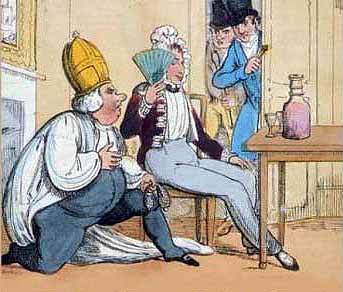
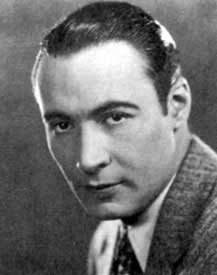
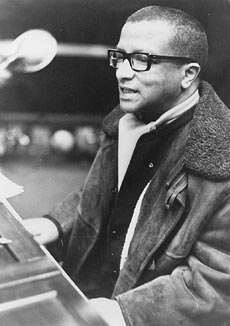
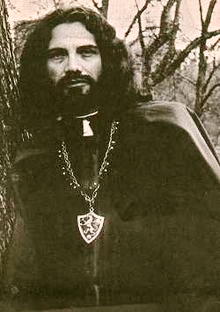

 Added 2024
Added 2024

